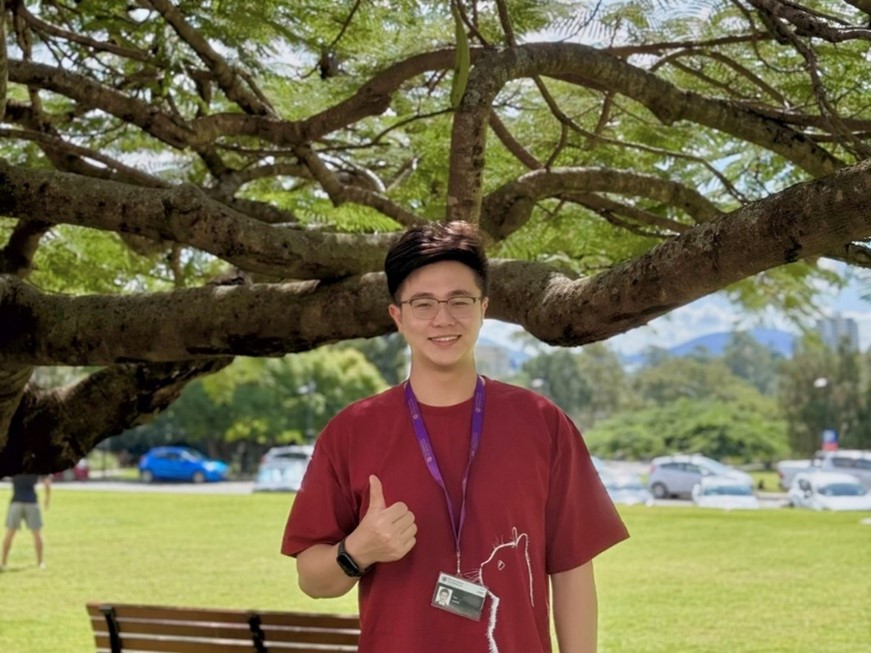


Two Students Secure National Science Foundation Funding for Innovative Research
April 21, 2024
In a significant milestone for the School of Biomedical Engineering at Shanghai Jiao Tong University (SJTU), two of its doctoral students, Bi Xinyuan and Huang Yida, have been awarded funding from the first batch of the National Natural Science Foundation of China (NSFC) for Young Students' Basic Research Projects. This initiative marks the NSFC's inaugural effort to support outstanding doctoral candidates, aiming to bolster the cultivation of young talents and spur innovative research.
Bi Xinyuan, a 2020 batch doctoral student in the Zhiyuan Honors Program at SJTU's School of Biomedical Engineering, under the mentorship of Professor Ye Jian and international guidance from Professor Huang Wei of the University of Oxford, has already made significant contributions to the field. With four first-author/joint first-author publications in prestigious journals such as Nature and four additional papers as a contributing author, Bi has also secured two patents. Her accolades include the National Scholarship, the title of Outstanding Graduate from SJTU, and the Zheng Scholar honor. Bi's journey began during his undergraduate years at SJTU, where he was introduced to the nanoscience field through a research internship. His undergraduate research under Professor Ye led to the successful initiation and completion of the seventh Zheng Project, with his findings published in "ACS Applied Nano Materials" and "Advanced Optical Materials." This experience solidified Bi's interest in nanomaterials and their clinical applications, fostering a research attitude that is both problem-solving and innovative. In his graduate studies, Bi has continued to excel, focusing on surface-enhanced Raman spectroscopy (SERS) and its biomedical applications. With the guidance of Professors Ye Jian, Shao Zhifeng, and Professor Czajkowsky, Bi has developed a digital colloidal enhancement Raman spectroscopy technique to address the repeatability challenges in low-concentration detection that have plagued SERS for five decades. His work has been recognized with publication in the esteemed journal Nature.

Huang Yida, also a 2020 batch doctoral student in the Zhiyuan Honors Program at SJTU's School of Biomedical Engineering, is advised by Professor Qian Kun. With a strong academic background, including a visit to Johns Hopkins University and a current joint training at the University of Queensland under Professor Chengzhong Yu, Huang has an impressive publication record with 15 SCI-indexed articles, four of which are first-author, and a cumulative impact factor exceeding 220. His work has been cited over 220 times on Google Scholar, and he holds four national patent applications. Huang's research journey commenced during his sophomore year at SJTU, where he joined Professor Qian's research group and contributed to a project on multi-level virus-mimicking microspheres for efficient cell capture. His undergraduate achievements include a cover publication in the journal Small and a special award in the 16th "Challenge Cup" National College Students' Extracurricular Academic Science and Technology Works Competition. As a doctoral candidate, Huang has focused on cancer diagnostics and prognosis prediction based on mass spectrometry molecular profiling. Under Professor Qian's guidance, he developed a high-performance solid-phase mass spectrometry chip that enables rapid, high-throughput, and highly reproducible detection of metabolic molecules in complex biological fluids. His research has been published in PNAS and recognized as an ESI highly cited paper. Huang has also collaborated with clinical doctors to establish the world's largest gastric cancer metabolomics cohort, contributing to a diagnostic model and prognostic prediction scoring system with clinical translational potential, as published in the top clinical journal GUT. The successful application for the NSFC grant is not just the beginning of a project but also signifies the start of a long-term research path for both students.

Bi Xinyuan and Huang Yida express their aspirations to continue focusing on scientific research and making continuous progress in the field of biomedical engineering.